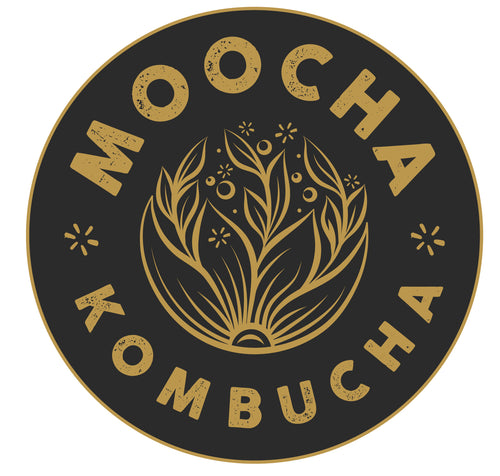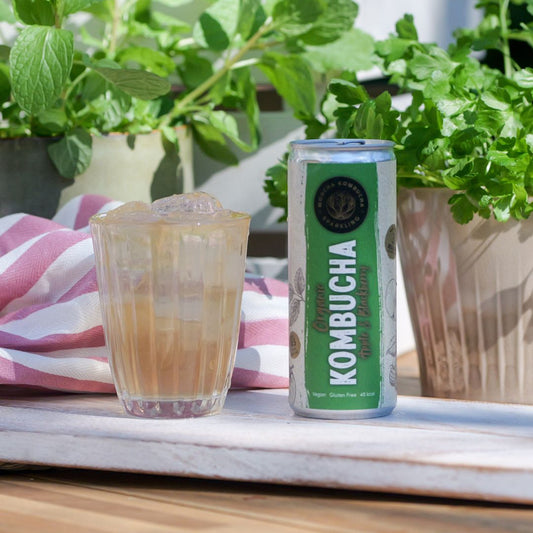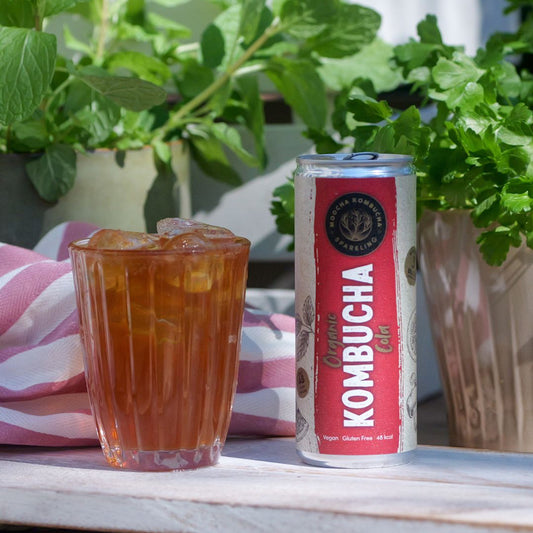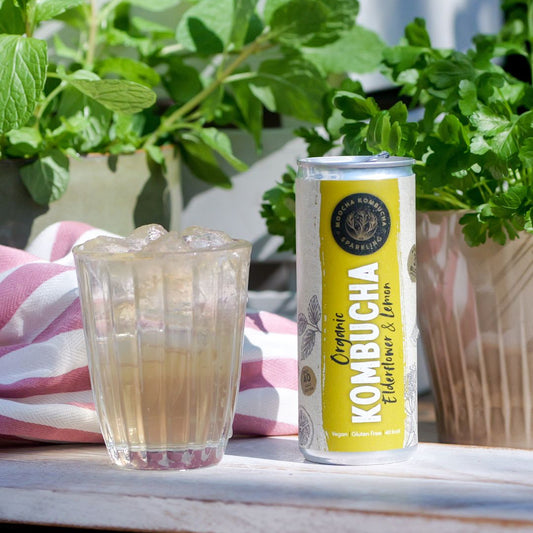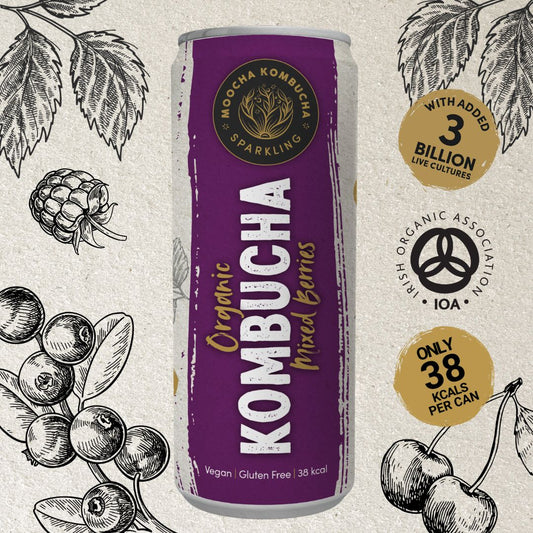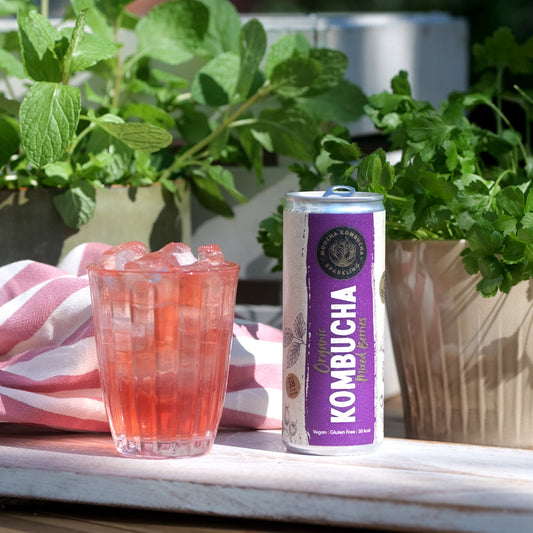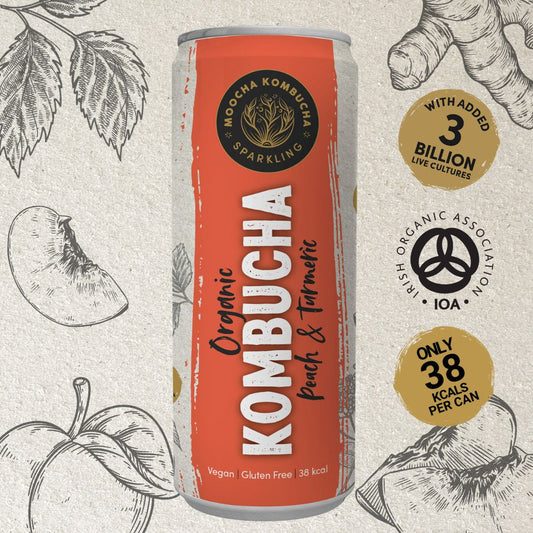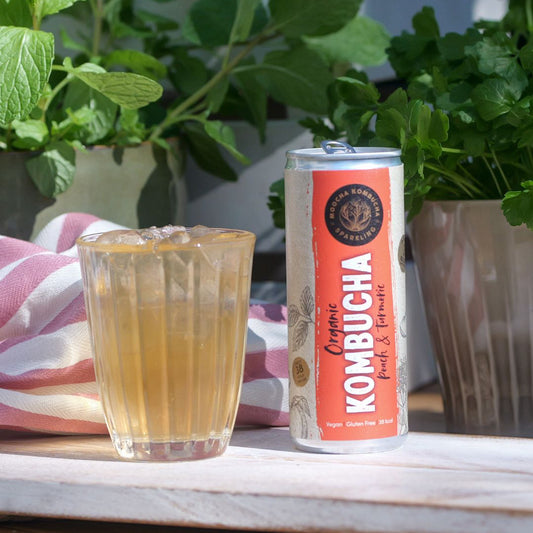What is Moocha Kombucha?
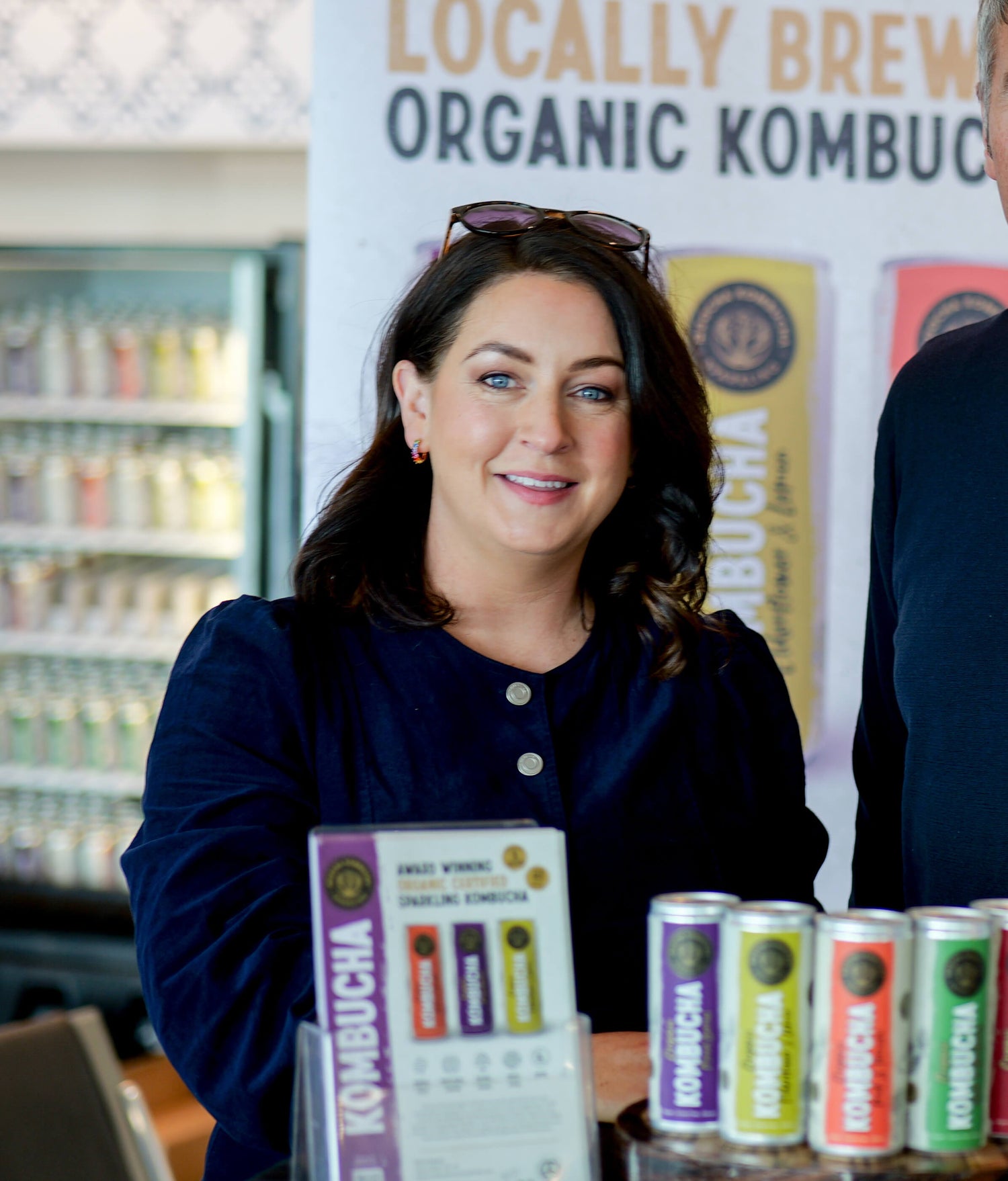
Meet Bronagh
the founder, brains and master brewer behind Moocha Kombucha
Bronagh, the owner of Moocha Kombucha, first discovered the delightful and beneficial drink while traveling across Australia. After becoming unwell she discovered the benefits of fermented food and in particular Kombucha. Upon returning to Tyrone, she realised kombucha wasn't widely available and decided to learning all things kombucha and started brewing her own. After 10 years of perfecting her craft, Moocha Kombucha was born.
Frequently Asked Questions
What is Moocha Kombucha?
Moocha Kombucha is a fermented tea drink which originated from Asia thousands of years ago, where it was known as the ‘tea of immortality’. It is made using four simple ingredients: tea, water, sugar, SCOBY (symbiotic culture of yeast and bacteria). Our Kombucha is a 100% Natural and made from organic green and black tea. It has been consumed for thousands of years and has wonderfully beneficial probiotics and antioxidants. Every bottle is packed full of goodness and gluten free & vegan friendly.
Our gut has around 25 feet of intestines! And our intestines have a microbiome – a community of microorganisms (such as bacteria, fungi and viruses). Our microbiome plays a really important role in our health. It helps control digestion and benefits our immune system and many aspects of our health.
Why is Moocha kombucha good for you?
The high levels of friendly bacteria, yeast and organic acids resulting from the fermentation process can assist in balancing and healing gut flora because they are similar to the microorganisms found naturally occurring in the digestive system.
As well as helping to ease digestion all fermented foods are recommended as an add on to your diet to help aid stomach problems such as leaky gut syndrome
and improve the imbalance in gut flora and probiotic levels in your body.
What are the benefits of drinking Kombucha every day?
Drinking moocha kombucha every day can contribute to creating a healthy microbiome (a make-up of multiple microbes) by populating the gut with friendly bacteria.
The microbiome is made of both friendly (symbiotic bacteria) and unfriendly bacteria (pathogenic). In a healthy microbiome, these two types of microbes live together without problems
The microbiome is sensitive and getting the balance right can be disrupted by every day factors such as stress, hormones, antibiotics, toxins and so it is helpful to consistently replenish the friendly microbes by consuming live, fermented food and drinks like kimchi, sauerkraut, kefir and kombucha.
So what does the gut do?
Our gut is our largest sensory organ, with a surface area 40 times that of our skin! One of the central functions is to gather information for the brain, communicating that we’re getting enough nutrients, how our immune cells are functioning and what our hormones are up to.
What is a healthy gut?
For a healthy gut, we need a balance of ‘good’ and ‘bad’ microbes in our intestines. An imbalance can contribute to several health concerns.
Glucuronic acid supports the liver’s detoxing duties and increases the activity of antioxidants to support a healthy immune system. Gluconic acid supports the growth of ‘good’ gut bacteria.
So, kombucha has a collection of awesome acids to support the good bacteria in our gut. The more we support these good guys, the happier our gut.
Having a healthy gut means having enough good bacteria, along with a scattering of ‘bad’ bacteria. In other words, rather than trying to eliminate the bad, the way to achieve gut health is to faithfully tend the good.
Probiotic-rich foods like kombucha are your best friend when trying help maintain a healthy balanced gut. Kombucha contains acetic, glucuronic and gluconic acids. Acetic acid is an ‘anti-bug agent’ with antibacterial effects.
Does Kombucha contain sugar?
Kombucha requires sugar to enable the vital fermentation process. The yeast ultimately breaks down the sugar to create alcohol which is then converted into bacteria.
Without real sugar (and not sweeteners) being added, the SCOBY cannot perform its unique transformational process which produces the beneficial acids and cultures. Our final kombucha drinks have very low sugar levels.
Does kombucha contain caffeine?
A very, very small amount, naturally from the tea. About 1/10th of a cup in fact! We drink Moocha Kombucha in the evening and feel fine. But you know yourself best!
How many calories are there in Kombucha?
Our organic kombucha in our 250ml slimline can contains 40 calories or less per can and our 330ml bottled kombucha contains 80 calories or less per bottle.
Making it the perfect low calorie option.
What are the benefits of probiotics?
There are many benefits of probiotics but as always, research is ongoing and more findings are coming alight about their role in all of our body systems. Because there are so many factors influencing our gut bacteria at the moment (pollution, pesticides, stress, poor food choices etc.), it’s never been so important to look after your gut bacteria.
Probiotics help with the digestion process and help to break down food. They also help balance levels of friendly bacteria in the gut which in turn supports the immune system. Approximately 70% of our immune system is located in our gut.
Probiotics help to support the cells that line your gut to prevent bad bacteria/toxins that you may have consumed (through food or drinks) from entering your blood. Probiotics can help ease bouts of bloating and/or Diarrhoea or constipation. Probiotics work by reducing inflammation and fighting bacteria or yeasts that cause skin infections.
How do you take kombucha?
We like to drink it chilled straight from the fridge whether it is first thing in the morning, with our lunch, as an afternoon pick-me-up. It really is the perfect drink for any time of the day!
5 key benefits of probiotics
Here are 5 benefits of probiotics
1, Probiotics help with the digestion process and help break down food
2, Probiotics help balance levels of friendly bacteria in the gut which supports immune system. Approximately 70% of our immune system is located in our gut.
3, Help support the cells that line your gut to prevent bad bacteria/toxins that you may have consumed (through food or drinks) from entering your blood.
4, Probiotics can help ease bouts of bloating and/or diahorea or constipation.
5, Probiotics work by reducing inflammation and fighting bacteria or yeasts that cause skin infections.
It could also be mentioned that if on antibiotic, it is advised to take a probiotic to repopulate gut with good bacteria.
